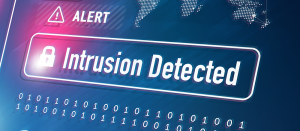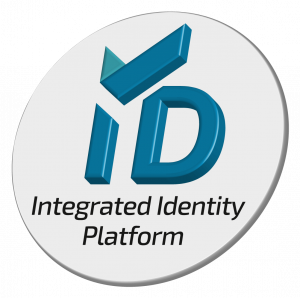There are only two kinds of people online: Those of us who know our identity was stolen and those that are about to find out. Which are you?
Me? I’m now one of some nine million Americans the FTC estimates have had their identities stolen each year.
In fact, “About 2 in 5 Americans have either been an identity theft victim or know someone who has,” said Bankrate.com analyst Mike Cetera. “This is a widespread problem and many people aren’t doing enough to protect themselves.”
I found out my identity was stolen on May 15th. A few weeks later week, I found out that a friend of mine had his identity stolen at about the same time. We both suspect the Equifax breach was behind this. If true, then we are just two of the 145.5 million people whose identities were stolen in this breach.
This may mean that a whole lot of other people either already have or are about to experience our pain. I suspect the thieves were holding on to our identities, hoping to lull us into thinking we’d be fine, it’s OK to get back in the water because nothing happened, and then WHAM! Bitten by a shark.
These cyber criminals made off with ALL of the things that make up our identity, at least all the things in the category: what you know.
- Name
- DOB
- Address
- Phone number
- Social security number
That’s the information you need to open a new credit card and immediately charge $10,000 in jewelry, rent a car and not return it, and generally wreak havoc on your life. You will feel violated.
You will have a new relationship with your mail because every day may bring news of another credit card opened in your name.
So, for those who don’t yet know their identity was stolen, I would consider taking the following precautions.
- Sign up for credit karma. It’s free and it will alert you before the credit bureaus do if a new account is opened in your name.
- Sign up for accounts at all the credit reporting agencies certified for your country. Check ALL of the information on your account and make sure it is accurate and that nothing has been changed. (On mine, they changed my phone number and address.) Look for any suspicious activity, like inquiries for credit that you didn’t authorize. In the US, every 12 months you can request a free copy of your credit report. Do that for each of these US credit bureaus:
- Equifax 800.525.6285
- Experian 888.396.3742
- TransUnion 800.680.7289
- Innovis 800.540.2505
- PRBC 888.222.7621
- SageStream 888.395.0277
- ARS 800.694-3048
- Seriously consider putting a freeze or lock on your credit report with each of those bureaus. Locking and freezing your credit file are two ways to help reduce the damage done by identity theft. The best option for you generally depends on how often you apply for credit and how much you’re willing to pay. These two articles will give you more information to decide whether it’s the right thing for you:
- CreditKarma: Should I lock or freeze my credit file?
- Consumer Reports: A credit freeze is not always the best option
Unlike the other steps, this can cost you. According to CreditCard.com: “The cost to put a freeze in place ranges from free (for ID theft victims or senior citizens) in some states to $20 per freeze in Delaware, while the cost of unfreezing runs from free to $18. The most common price is $10, but in 44 states, no fee is charged to identity theft victims.”
Taking action before someone steals your identity makes it a lot easier and takes less time than doing it after.
Here’s my final word on this subject: If only it were more common for identity to be tied to who you are — your biometrics — instead of what you know, life would be easier.
The argument many make is: if my password gets stolen, I can always reset it, but if my biometrics get stolen, I’m out of luck. Think about that in context of what happened to me. The thieves were only interested in passwords in order to steal the underlying information that I can’t change! Your name, DOB, social security and so on — these are things you can’t change. So for the rest of my life, I need to be on the alert, waiting for the next time someone ‘pretends’ to be me, and it will happen. Next month, next year, in 5 years, in 25 years. Online they are me. There is nothing to prove that they aren’t at this point.
If the final step to get a new credit card or a loan was actually proving you are who you say with biometrics, your identifying information would be safe. Identity thieves would be out of luck. The value of the underlying information would diminish as they couldn’t readily use it. I think then, identity theft would fall at a tremendous rate.
So now you say: They will just steal your biometrics. Maybe so, but they would have to target each person individually, not millions at a time. The reward would not merit the time and effort unless perhaps you’re Bill Gates and Warren Buffet.
I wish I could turn back the clock and have my identity protected by my biometrics. Instead, I’ll be waiting for the other shoe to drop. When and where I’ll soon find out.





